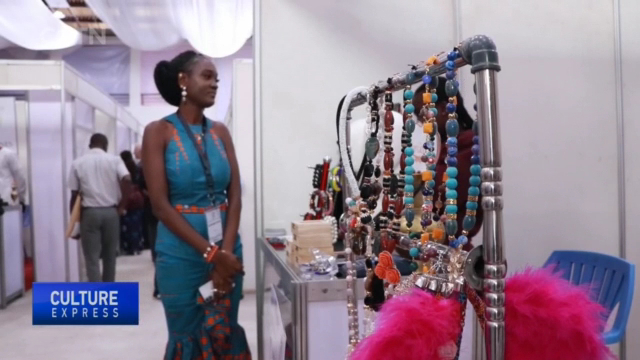
18:44, 13-Aug-2019
Nigeria Jewellery Exhibition: Abuja exhibition aims at developing country's jewellery sector
Updated
19:27, 13-Aug-2019

The African Gems and Jewelry Exhibition has opened in the Nigerian capital, Abuja, with exhibitors showcasing their finest jewels to potential investors. But as CGTN's Kelechi Emekalam reports, Nigeria has yet to benefit financially from trade in its gemstones.
A runway display of some of Nigeria's jewelry and precious stones. Jewelers, gemstones miners, marketers and industry experts have come from all over Africa to showcase the vast diversity of Nigerian and African gems and designs.The idea is to stimulate trades in the sector enough to contribute significantly to Nigeria's GDP. Gemologist, Jessica Ogheva, is one of the exhibitors here. She started hand-making her jewelries six years ago and now her brand has gone beyond the shores of Nigeria.
JESSICA OGHEVA GEMOLOGIST "We've been able to have customers from the UK, from different countries in Africa, as well as even from China."
Precious stones like Emerald, Zircon and Sapphire are among several that could be a money spinner for the country. But strict mining policies have given rise to illegal mining activities.
KELECHI EMEKALAM ABUJA, NIGERIA "Despite having one of the largest deposits of gemstones in the world and in very large commercial quantities, Nigeria is losing up to $3 billion yearly to unofficial trade in gemstones."
The solid minerals industry contributes a meager 0.3 percent to the country's GDP, a status industry players want to see change.
ADETOKUNBO KAYODE, PRESIDENT ABUJA CHAMBER OF COMMERCE AND INDUSTRY "The missing link is again governance. We need to identify and we're beginning to do that. This is a private driven sector, it's a business, it's not government. We want to remove discretion, use technology to drive everything, what they call the single window. So we can apply, everybody knows what we have and it's done, then government gets its own revenue, make your money and the business is done and everybody is happy."
Without much government involvements, mining and trades in gemstones are likely to remain stunted.
Global projections for the industry is estimated at 4.73 percent growth a year, and could be worth over $443 billion by 2022.
The exhibition is focusing on developing the sector to improve processes along the value chain and birth great African brands that can compete globally. Kelechi Emekalam, CGTN Abuja Nigeria.
SITEMAP
Copyright © 2018 CGTN. Beijing ICP prepared NO.16065310-3
Copyright © 2018 CGTN. Beijing ICP prepared NO.16065310-3